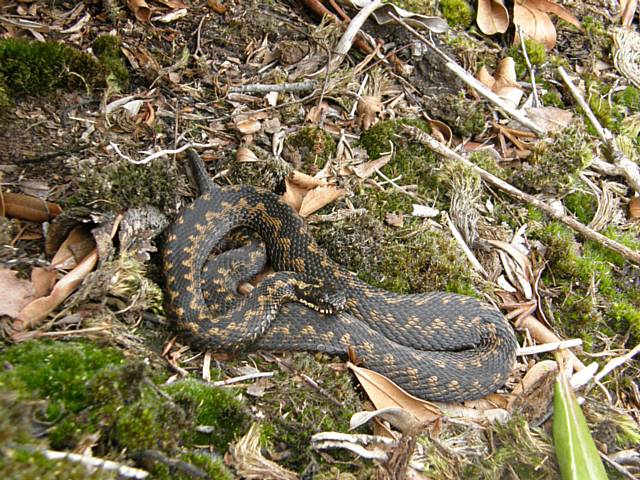Country walking? Think snakes
Date published: 24 May 2012
Poisons experts are advising people planning country and woodland walks this summer how to reduce their risk of a snake bite.
The Health Protection Agency’s specialist commissioned National Poisons Information Service is the poisons advisory body for frontline medics. Between 2009-11, the service was asked for help 196 times after patients were bitten by adders. Calls came from all regions of England, Scotland and Wales.
Adders are the only venomous snakes living wild in England, Scotland and Wales, and about half of the bites NPIS were alerted to occurred after a snake was picked up.
So as the holiday season approaches NPIS, is urging anyone planning on spending time outdoors this summer to take care, respect any wildlife they come across and to leave snakes alone.
“Adder numbers have decreased in recent years so they are rare but still present in certain areas,” said Professor Simon Thomas, Director of NPIS Newcastle.
“They usually keep well out of sight, but in the summer months are active because the weather is warmer. Because they are well camouflaged people can accidentally tread on them, which is when they can bite. They can also bite if picked up.
“The bite can have very nasty effects, especially in smaller children – so it’s best to take care when out walking, wear appropriate footwear for the terrain and do not handle any snakes. Sometimes the venomous adder can be mistaken for non-venomous species such as the grass snake or smooth snake, making people think it is safe to pick them up.”
Snake bites do not always lead to the injection of venom into the wound. When no venom is released there is always a risk the wound may become infected but the anxiety caused to the patient is often the greatest health concern.
When an adder bite does deliver venom it can cause local pain, tenderness, swelling and bruising which can spread. If a child is bitten, effects may be seen across the whole body.
“The number of queries to us about adder poisonings have been fairly consistent over the years which would suggest people do come into contact with them,” said Professor Thomas.
“Although almost all poisonings from adder bites produce relatively minor effects the illnesses they lead to can be extremely unpleasant. And it’s worth remembering that the effects from these bites can be much more serious, though this is rare. Because of this our advice is simply to do what you can to minimise your exposure. Do go out and enjoy the countryside. That’s really important.
“But if you are going somewhere with large areas of open space, just think about what you’re doing and most importantly of all, if you come across an adder, or indeed any snake or reptile, give it the respect it deserves as a wild animal and leave it alone.”
Anyone bitten by a snake should seek urgent medical attention.
Do you have a story for us?
Let us know by emailing news@rochdaleonline.co.uk
All contact will be treated in confidence.
Most Viewed News Stories
- 1Abandoned shopping centre to be brought back to life as a banqueting hall
- 2‘Express’ bus service from Norden to Manchester city centre via Heywood is on the cards
- 3Two men arrested after suspected stolen car fails to stop in Rochdale
- 4'Game changing' Northern Gateway development set to take step forward
- 5Ramadhan Health Fair event at Wardleworth Community Centre
To contact the Rochdale Online news desk, email news@rochdaleonline.co.uk or visit our news submission page.
To get the latest news on your desktop or mobile, follow Rochdale Online on Twitter and Facebook.


